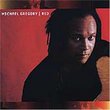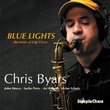| All Artists: Gustav Mahler, David Zinman, Zurich Tonhalle Orchestra Title: Mahler: Symphony No. 5 [Hybrid SACD] Members Wishing: 2 Total Copies: 0 Label: RCA Original Release Date: 1/1/2009 Re-Release Date: 2/3/2009 Album Type: Hybrid SACD - DSD Genre: Classical Style: Symphonies Number of Discs: 1 SwapaCD Credits: 1 UPC: 886973145029 |
Search - Gustav Mahler, David Zinman, Zurich Tonhalle Orchestra :: Mahler: Symphony No. 5 [Hybrid SACD]
![Mahler: Symphony No. 5 [Hybrid SACD]](https://nationalbookswap.com/cd//l/29/4129/6174129.jpg) | Gustav Mahler, David Zinman, Zurich Tonhalle Orchestra Mahler: Symphony No. 5 [Hybrid SACD] Genre: Classical |
Larger Image |
CD DetailsSimilar CDs
|
CD ReviewsAt last, truly relaxing Mahler Santa Fe Listener | Santa Fe, NM USA | 09/04/2009 (5 out of 5 stars) "If like me you are sick of know-it-all reviewers who insist that Mahler should be over the top, this is the Mahler Fifth for you. It's incredibly relaxing. Bernstein's passion and dramatics? Who needs it? He should have gotten over himself a long time ago. Zinman proves that you can listen to an entire Mahler symphony without getting your pulse to race, and in this age of ultra stress, that's a really good thing. I think so, at least, and so does my cat, Mephistopheles. We both adore Zinman's entire Mahler cycle. Keep 'em coming." Good, not great Mahler Fifth Prescott Cunningham Moore | 08/23/2009 (3 out of 5 stars) "Recent recording history has not been kind to the Mahler Fifth. Marris Jansons Concertgebow recording was good, not great; Gustavo Dudamel's Sinfónica Simón Bolívar de Venezuela was ok, not good; Michael Tilson Thomas's San Francisco recording was mediocre, not ok; and Simon Rattle's Berlin Philharmonic recording was bad, not mediocre. David Zinman's Mahler Five falls somewhere in the middle, in a performance most similar to Thomas's, but with greater structural and architectural clarity, more presence from the winds, and a better adagietto.
Like Thomas, Zinman gets better as the symphony progresses, which is a good thing, because Part One does not fair well. The first movement sounds excessively long and slow, not due to the tempo choice, but because Zinman fails to clearly articulate the triplet figures throughout, resulting in a flaccid, heavy, and ponderous reading that sounds like anything but a march. If anything, the second movement is even worse, opening mechanically but without much vehemence while the major fanfare is underplayed to a fault. However, things take a turn with the scherzo, due in no small part to Zinman's placement of the horn at the front of the orchestra (Rattle did the same in his Berlin Mahler Five). This generates a tremendous amount of color, the obligatto player at the front against the mass of horns in the rear of the hall. However, Zinman also shapes a wonderful scherzo, bringing a great deal of clarity to Mahler's unique but thoroughly logical formal structure. The huge declamation before the entrance of the trio is thrilling, while the trio itself is slow but never sounds labored. Zinman's tempo choice for the adagietto allows the music to unfold naturally without sagging, honoring Mahler's tempo choice (this is not an adagio). He further keeps the strings in check, never letting the music to wallow in excessive sentiment, which is refreshing. The finale is uniformly spectacular. Like Thomas, Zinman really highlights the counterpuntal writing, but, unlike Thomas, offers a more coherent architectural presentation of the rondo. The final peroration is effective, while the coda is sensationally exciting. Sonics are good, not great. The Tonhalle sounds excessively deep while RCA's perspective places the listener at the podium, which places the stereophonic violins in the outer limits of the aural landscape. Brass is deep, in the rear, while the winds anchor clearly in the center. The playing also progresses as the performance progresses; the orchestra sounds uneasy in Part One, but improves substantially by the Rondo. The winds register wonderfully, their loopy party writing in the finale is especially impressive. Brass, especially the trumpets, could be more present. Those collecting the cycle will enjoy this release, especially because Zinman presents a very architecturally satisfying Fifth. However, those that already have Thomas's Fifth may find this release essentially a duplication of the San Francisco recording. Still, there are plenty of fine Fifths in the catalogue, including Bernstein, Levine, Solti, Chailly, Tennstedt, Karajan, Gielen, and Barshai, for those looking for a reference of this, Mahler's most counterpuntal symphony." |




